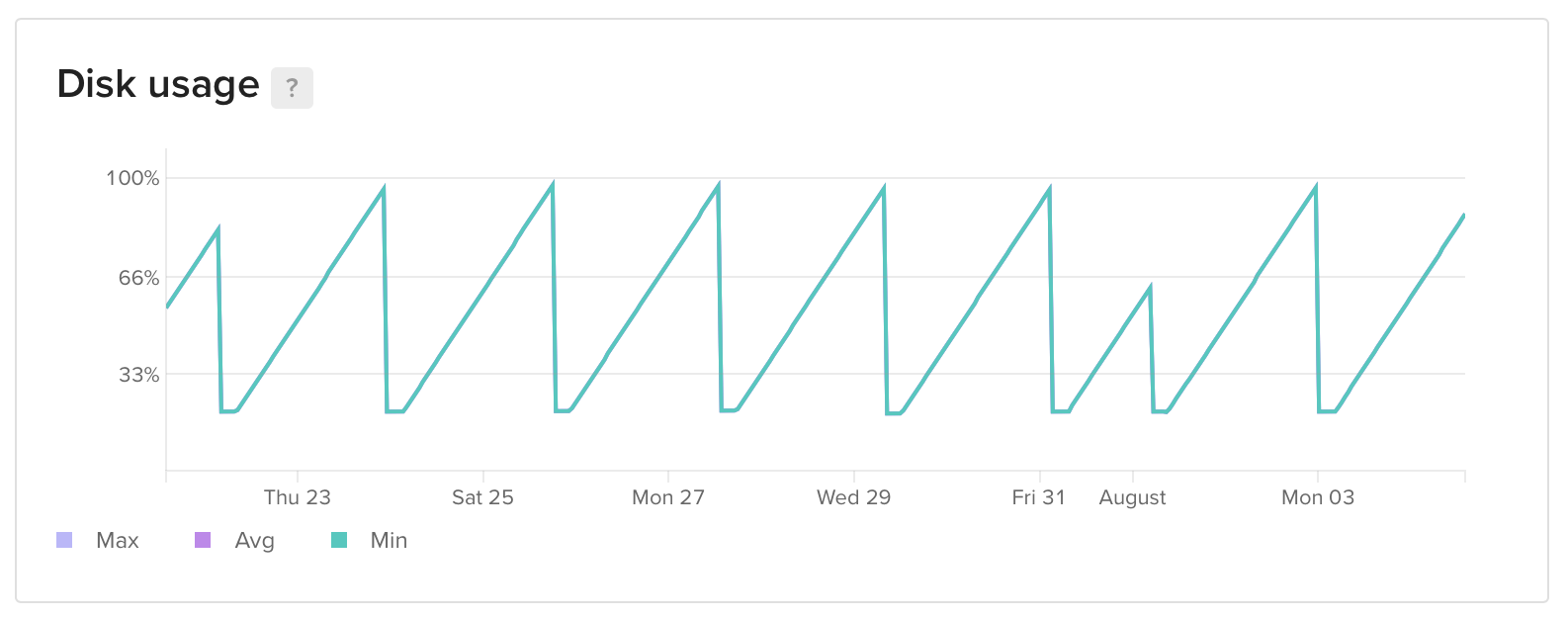Send ephemeral messages, track and synchronize shared state, and listen to Postgres changes all over WebSockets.
Multiplayer Demo
·
Request Feature
·
Report Bug
| Features | v1 | v2 | Status |
|---|---|---|---|
| Postgres Changes | ✔ | ✔ | GA |
| Broadcast | ✔ | Beta | |
| Presence | ✔ | Beta |
This repository focuses on version 2 but you can still access the previous version's code and Docker image. For the latest Docker images go to https://hub.docker.com/r/supabase/realtime.
The codebase is under heavy development and the documentation is constantly evolving. Give it a try and let us know what you think by creating an issue. Watch releases of this repo to get notified of updates. And give us a star if you like it!
This is a server built with Elixir using the Phoenix Framework that enables the following functionality:
- Broadcast: Send ephemeral messages from client to clients with low latency.
- Presence: Track and synchronize shared state between clients.
- Postgres Changes: Listen to Postgres database changes and send them to authorized clients.
For a more detailed overview head over to Realtime guides.
The server does not guarantee that every message will be delivered to your clients so keep that in mind as you're using Realtime.
You can check out the Multiplayer demo that features Broadcast, Presence and Postgres Changes under the demo directory: https://github.com/supabase/realtime/tree/main/demo.
- JavaScript: @supabase/realtime-js
- Dart: @supabase/realtime-dart
To get started, spin up your Postgres database and Realtime server containers defined in docker-compose.yml. As an example, you may run docker-compose -f docker-compose.yml up.
Note Supabase runs Realtime in production with a separate database that keeps track of all tenants. However, a schema,
_realtime, is created when spinning up containers viadocker-compose.ymlto simplify local development.
A tenant has already been added on your behalf. You can confirm this by checking the _realtime.tenants and _realtime.extensions tables inside the database.
You can add your own by making a POST request to the server. You must change both name and external_id while you may update other values as you see fit:
curl -X POST \
-H 'Content-Type: application/json' \
-H 'Authorization: Bearer eyJ0eXAiOiJKV1QiLCJhbGciOiJIUzI1NiJ9.eyJpc3MiOiIiLCJpYXQiOjE2NzEyMzc4NzMsImV4cCI6MTcwMjc3Mzk5MywiYXVkIjoiIiwic3ViIjoiIn0._ARixa2KFUVsKBf3UGR90qKLCpGjxhKcXY4akVbmeNQ' \
-d $'{
"tenant" : {
"name": "realtime-dev",
"external_id": "realtime-dev",
"jwt_secret": "a1d99c8b-91b6-47b2-8f3c-aa7d9a9ad20f",
"extensions": [
{
"type": "postgres_cdc_rls",
"settings": {
"db_name": "postgres",
"db_host": "host.docker.internal",
"db_user": "postgres",
"db_password": "postgres",
"db_port": "5432",
"region": "us-west-1",
"poll_interval_ms": 100,
"poll_max_record_bytes": 1048576,
}
}
]
}
}' \
http://localhost:4000/api/tenantsNote The
Authorizationtoken is signed with the secret set byAPI_JWT_SECRETindocker-compose.yml.
If you want to listen to Postgres changes, you can create a table and then add the table to the supabase_realtime publication:
create table test (
id serial primary key
);
alter publication supabase_realtime add table test;You can start playing around with Broadcast, Presence, and Postgres Changes features either with the client libs (e.g. @supabase/realtime-js), or use the built in Realtime Inspector on localhost, http://localhost:4000/inspector/new (make sure the port is correct for your development environment).
The WebSocket URL must contain the subdomain, external_id of the tenant on the _realtime.tenants table, and the token must be signed with the jwt_secret that was inserted along with the tenant.
If you're using the default tenant, the URL is ws://realtime-dev.localhost:4000/socket (make sure the port is correct for your development environment), and you can use eyJhbGciOiJIUzI1NiIsInR5cCI6IkpXVCJ9.eyJleHAiOjE3MDMwMjgwODcsInJvbGUiOiJwb3N0Z3JlcyJ9.tz_XJ89gd6bN8MBpCl7afvPrZiBH6RB65iA1FadPT3Y for the token. The token must have exp and role (database role) keys.
ALL RELEVANT OPTIONS
Note Realtime server is tightly coupled to Fly.io at the moment.
PORT # {number} Port which you can connect your client/listeners
DB_HOST # {string} Database host URL
DB_PORT # {number} Database port
DB_USER # {string} Database user
DB_PASSWORD # {string} Database password
DB_NAME # {string} Postgres database name
DB_ENC_KEY # {string} Key used to encrypt sensitive fields in _realtime.tenants and _realtime.extensions tables. Recommended: 16 characters.
DB_AFTER_CONNECT_QUERY # {string} Query that is run after server connects to database.
API_JWT_SECRET # {string} Secret that is used to sign tokens used to manage tenants and their extensions via HTTP requests.
FLY_ALLOC_ID # {string} This is auto-set when deploying to Fly. Otherwise, set to any string.
FLY_APP_NAME # {string} A name of the server.
FLY_REGION # {string} Name of the region that the server is running in. Fly auto-sets this on deployment. Otherwise, set to any string.
SECRET_KEY_BASE # {string} Secret used by the server to sign cookies. Recommended: 64 characters.
ERL_AFLAGS # {string} Set to either "-proto_dist inet_tcp" or "-proto_dist inet6_tcp" depending on whether or not your network uses IPv4 or IPv6, respectively.
ENABLE_TAILSCALE # {string} Use Tailscale for private networking. Set to either 'true' or 'false'.
TAILSCALE_APP_NAME # {string} Name of the Tailscale app.
TAILSCALE_AUTHKEY # {string} Auth key for the Tailscape app.
DNS_NODES # {string} Node name used when running server in a cluster.
MAX_CONNECTIONS # {string} Set the soft maximum for WebSocket connections. Defaults to '16384'.
MAX_HEADER_LENGTH # {string} Set the maximum header length for connections (in bytes). Defaults to '4096'.
NUM_ACCEPTORS # {string} Set the number of server processes that will relay incoming WebSocket connection requests. Defaults to '100'.
DB_QUEUE_TARGET # {string} Maximum time to wait for a connection from the pool. Defaults to '5000' or 5 seconds. See for more info: https://hexdocs.pm/db_connection/DBConnection.html#start_link/2-queue-config.
DB_QUEUE_INTERVAL # {string} Interval to wait to check if all connections were checked out under DB_QUEUE_TARGET. If all connections surpassed the target during this interval than the target is doubled. Defaults to '5000' or 5 seconds. See for more info: https://hexdocs.pm/db_connection/DBConnection.html#start_link/2-queue-config.
DB_POOL_SIZE # {string} Sets the number of connections in the database pool. Defaults to '5'.
SLOT_NAME_SUFFIX # {string} This is appended to the replication slot which allows making a custom slot name. May contain lowercase letters, numbers, and the underscore character. Together with the default `supabase_realtime_replication_slot`, slot name should be up to 64 characters long.The WebSocket URL is in the following format for local development: ws://[external_id].localhost:4000/socket/websocket
If you're using Supabase's hosted Realtime in production the URL is wss://[project-ref].supabase.co/realtime/v1/websocket?apikey=[anon-token]&log_level=info&vsn=1.0.0"
WebSocket connections are authorized via symmetric JWT verification. Only supports JWTs signed with the following algorithms:
- HS256
- HS384
- HS512
Verify JWT claims by setting JWT_CLAIM_VALIDATORS:
e.g. {'iss': 'Issuer', 'nbf': 1610078130}
Then JWT's "iss" value must equal "Issuer" and "nbf" value must equal 1610078130.
Note:
JWT expiration is checked automatically.
expandrole(database role) keys are mandatory.
Authorizing Client Connection: You can pass in the JWT by following the instructions under the Realtime client lib. For example, refer to the Usage section in the @supabase/realtime-js client library.
This repo is licensed under Apache 2.0.
- Phoenix -
Realtimeserver is built with the amazing Elixir framework. - Phoenix Channels JavaScript Client - @supabase/realtime-js client library heavily draws from the Phoenix Channels client library.









